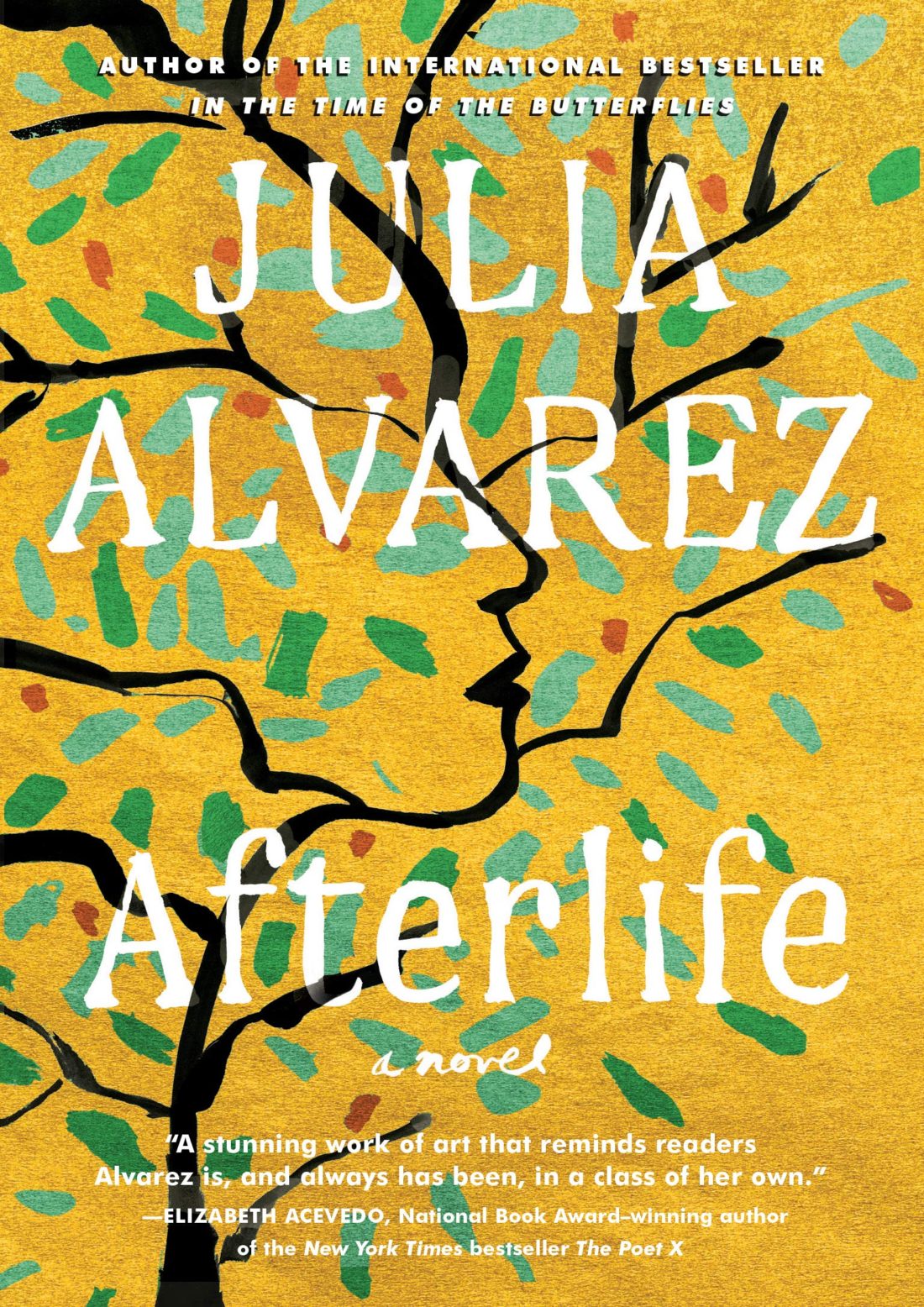Spencer Grayson reviews Julia Alvarez’ Afterlife.
Julia Alvarez’s new novel begins with verse, not prose, in a prologue titled “Broken English.” Her narrator Antonia Vega recalls the death of her husband in a car accident a year ago: “she keeps asking / Where are you? / as this is the only way she knows / Can you help me find him? / how to create an afterlife for him.”
The prologue’s title points to the racism that Antonia, a Dominican-American literature professor in rural Vermont, faces as she “teach[es] Americans their own language.” But it also depicts poetry, with its line breaks and often unpredictable rhythms, as a “broken” form of language, incapable of supporting the burdens of expression. Afterlife’s plot is elaborate—Antonia’s mentally unstable older sister disappears, leading to a cross-country search, and Mario, a farm worker and Antonia’s neighbor, asks her to shelter Estela, his pregnant and undocumented girlfriend—but the novel best succeeds in its study of language, how it both bears and multiplies Antonia’s burdens.
Antonia is terrified of her grief and that of others, in which “not just the world but the words fall apart,” and she clings to a repository of poems and “salutary lines” rather than involve herself in tragedy. But her dreams of linguistic precision and avoiding the struggles of interpretation repeatedly fall short. In one poignant episode, Antonia asks Estela in Spanish when she will give birth, dar a luz. The phrase, Antonia explains in the narration, means “give to the light” and refers to the Virgin Mary giving birth to Jesus. But Estela does not understand the euphemism. Metaphor is insufficient for Antonia’s interpersonal needs.
Afterlife is relatively short, with a quick-paced plot: its meditations on mistranslation, the burdens of interpretation and the wrongness of words well chosen, can easily be lost in the action of Antonia’s familial dramas. But the novel rewards precise, close reading, savoring the simultaneous pleasures and failures of language.
Afterlife / Julia Alvarez / Algonquin / 04/2020– $17 (Paperback)

